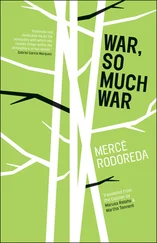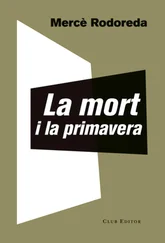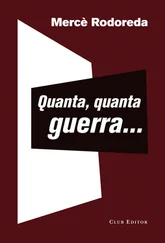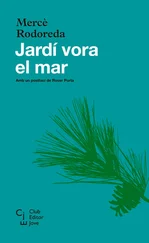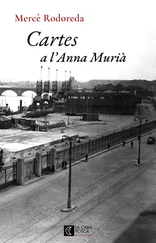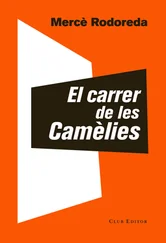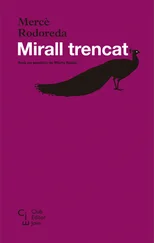. . here come the lovers. . where are the lovers?
Madame Létard picked up two saccharin tablets, put one in her cup, and was about to put the other in her subtenant Lisa Sperling’s.
“No!”
She stopped the hand with an abrupt gesture.
“Do you still have some sugar?”
“There’s a bit left.”
“Then I’ll take sugar this evening.”
She picked up the steaming cup, said good night, and went into her room. Closed the door and slowly turned the key. She set the cup on the little table in front of the window and stood a while, not sure where to start all the work she wanted to do but perhaps wouldn’t.
I’ll begin with the suitcase. She took it out from under the bed and put it on top. Letters, pictures. It’s all mine, but it seems like it already belongs to someone else. She had thin, bitter lips. The corners of her mouth were pale, slightly purple in the center, and her teeth were yellow, with large spaces between them. It looks like the mouth of a corpse, a friend of hers had once said. She picked up the letter from her son and started reading it for the hundredth time. “Dearest Mother, today we leave. Once we’re settled in Minsk, you can come. I hope the trains will soon be running properly. I don’t want you to have to make such a long journey if it’s going to be difficult for you. Trust me.” She folded the letter slowly and kissed it. But then the war with Russia had begun, and she had stayed on alone, isolated, in Limoges, where she had settled after fleeing Paris.
She took out three photos. One was her sister: “To my dear Lisa. Souvenir from Anna Sperling. Odessa, 1916.” One was her when she was eighteen. She was wearing a gauze dress, white, with a wide velvet belt. The white gauze dress with the red velvet belt. The bow, tied behind her, hung down over her skirt. I was blonder; she was the one who was going to succeed. How far away that girl is now, how very far! She put the two photos together. Anna had died young, TB. She’d left a diary and a collection of verses. She, at least, hasn’t suffered so much. The third photo was of her as a bride. So many dreams then. The only thing I’ve got left is my son’s love. My husband, no, not him. If only the kisses he offered other women had been given to me. She put the photos back in the suitcase and shut it.
She stood in the middle of the room. Now, what do I do? Ah, yes, the books. On the table lay half a dozen. She picked them up one by one, looked at the spines, slowly running her hand across the covers. Where did I put the paper and string? She found them in the drawer of the little table and began packing.
From the next room she could hear the sound of plates. Madame Létard was washing the dishes. A cat was meowing.
On a piece of paper she wrote: Monsieur Jean Schuster, 148, Avenue Carnot, Limoges.
This past winter I thought that. . He was so attentive to me. He’s alone too. It was just friendship. I’m getting old. She put her hands on her cheeks; the skin was loose, full of pores, earth-colored. Skin that has lived.
Clothes. She opened the wardrobe wide and began to remove piles of clothes. She selected them and put them on the chairs. The nightgowns for Maria: she needs them. These blouses for. . and the dresses? She took out a fox fur and looked at it for a while. The coat I wore how many years ago? Fifteen? A hundred? What was that coat made of? Even if they killed me, I couldn’t say. If you could go back in time, I’d choose that moment. . I forgot the jewelry, Lisa. . My father was so strong! I’ll go get it. . I did the eighty kilometers by sled, with the soldiers. I found the jewelry where my father told me. I’ve never forgotten our house, though I never saw it again. You could hear the canons as I was leaving the village. The last train. I left on the last train, full of poor people with packages and baskets. And the cold. Are you cold? We shared his food. He was tall, young like me, handsome in his officer’s uniform. All night he stayed beside me: he took off my shoes and warmed my feet with his hands. He put his fur-lined coat around me. He was the age my son is now. . Where are the lovers? my husband used to say to me every day when he came home. My son and I were the lovers . We were always, always together. I made him what he is today, if he’s still alive. I helped him with his lessons when he was little. He never went to a concert without me. Here come the lovers . And now, there’s nothing.
She picked up her purse and sat down in front of the table. Opened it and emptied it out. Her identity card. She read out her name: Lisa. She’d had the picture taken in Rouen, before the war, when she was in charge of a dressmaker’s workroom. She left two days before the occupation. She couldn’t find her son in Paris; without letting her know, he’d gone in search of her and then it was too late to leave Rouen. Come on, Lisa. We have a place for you in the car. Don’t stay, it’s dangerous. Maybe I should have stayed in Paris and not listened to them. She opened her identity card: Israeli. It’s been a week now. When will it be someone else’s turn? Every month some are taken away. From her purse full of papers, a franc fell out. She picked up the coin and looked at it. A brief, ironic smile crossed her lips. One franc. I’ve never been this rich. I need absolutely nothing, nothing, nothing. Madame Gendron can keep her rich refugee’s diamonds. With her diamonds, she stood politely over everyone’s poverty. I don’t need anything. Don’t want to struggle anymore.
The cup had stopped steaming; the coffee was no doubt cold. Madame Létard must have been in bed; there was no sound from her bedroom next door. The cat was curled up asleep beneath the stove. Only silence seemed to exist.
Lisa, Lisa, Lisa. She pronounced her name slowly, as if she were saying the name of a dead person. She looked at the wide bed with the lace bedspread and the ledge above the fireplace with the clock in the middle, stopped forever, and the sea snails on both sides. She was hot: the air in the room was unbreathable. She walked over to the window and opened it wide, being careful not to make any noise. A violent perfume from the lilacs entered the room. Close to the window, the air was gently swaying the flowery feathers. Behind the lilacs, further away, stood the river. The water flowed silently, dark, reflecting the streetlights from the bridge. The sky was a brazier of stars all ablaze.
She looked for a long time, without moving. Where are the lovers? The war had passed through Minsk some months before. Where could my son be? The war, snow, canons. When I got off the train with the jewelry, he took my hand. He laughed. Are you cold? They must have killed him. My father said: Thank you, Lisa. It’s all we have left. I would never have returned alive from this trip. He was crying. I had never seen him cry before.
She put her hands around her neck. A rush of anguish rose from her heart. She clenched her teeth; she didn’t want to cry. How cruel. What a cruel moment of loneliness. Surrounded by this poisonous peace saturated with loneliness. . Like an open door.
She removed her wedding ring and left it in the center of the table, the franc on the ledge by the clock. Took a sheet of paper and tore it into four pieces. For Maria. For Madame Létard. For Monica Werner. For Rosa Ramírez. She placed a slip of paper on each pile of clothes. Burn the pictures and the letters. This last paper she left on top of the suitcase. From a corner of the wardrobe she removed two tubes of Veronal. She took one and emptied it in her cup. Had to shake the tube to empty out the last pills. Stirred the cup with the spoon. It was going to be hard to dissolve all the little white disks. She removed the top from the other bottle and emptied it into her cup. I don’t want to ever wake up.
Читать дальше

